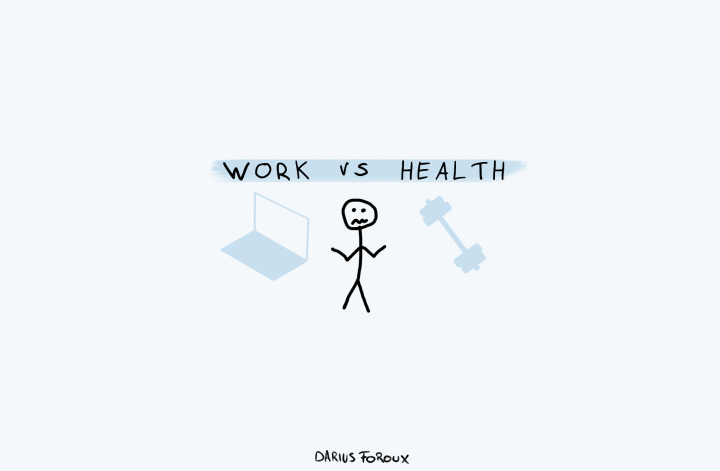What does it mean to be wise? To me, it has nothing to do with a person’s IQ or degree. A wise person is someone who applies common sense.
That sounds paradoxical, right? Common sense is common after all. It’s about the insights, lessons, and wisdom everyone knows. But the problem is that not everyone applies what they know.
In fact, it’s very uncommon to see people applying common sense. I know a few people who I consider as wise, and none of them are considered geniuses. They’re just reliable, experienced, calm, and good people who live normal lives.
In this article, I share six habits/behaviors I’ve observed from watching them.
1. Rely on facts, not assumptions
Most people make assumptions without realizing it. Every time we’re not sure about something, we’re making assumptions.
If I send someone an email about a business proposal, and they don’t get back to me in two days, and I think they’re not interested, I’m making an assumption. The belief that someone is not interested because they don’t instantly respond is just an idea that’s not based on facts.
As long as I don’t get a response in that scenario, I can’t say whether we have a deal or not. In our daily lives, we make countless of these assumptions. And most of our judgments are based on our personal beliefs. The problem is we can’t trust our beliefs simply because they are so subjective.
Instead, rely on facts and avoid interpreting everything based on your ideas, beliefs, and feelings. A quick shortcut you can apply is this: Observe your thoughts and ask yourself, “How do I know what I’m thinking is true?” You often find that you either need to ask more questions, do research, or simply wait until you receive feedback.
2. Think from first principles
Thinking from first principles was coined by the Ancient Greek philosopher, Aristotle. Elon Musk explained this idea really succinctly in an interview with Kevin Rose.
Some people assume that thinking from first principles means you don’t make assumptions. But for Musk, it means you go even beyond looking at facts.
In the interview he gave an example of how people looked at the cost of batteries: “People would say, ‘Historically it cost $600 per kilowatt-hour, and so it’s not going to be much better than that in the future.’ And you say, No, what are the batteries made of? First-principles means you say: Okay, what are the material constituents of the batteries?”
Sometimes the facts of today will limit you. At some point, the cost of batteries was at a certain level, but that doesn’t mean the cost cannot decrease. Thinking from first principles is a way to challenge the status quo. It’s looking at what is, and thinking what could be, keeping the laws of human nature and physics in mind.
Wise people constantly ask, “Is there a better way we can do this?”
3. Read a lot and read widely
Every wise person I know has a very broad set of knowledge, ranging from history to economics to psychology. We’re all equipped with this fascinating brain that’s the perfect instrument for solving problems.
But that instrument needs energy and food to properly function. Feeding your body is easy: You eat.
But what about feeding your mind? This is something not a lot of people take seriously. Most people’s days consist of work and leisure. At what moment do you nurture your mind?
It’s when you’re intellectually challenged. That doesn’t happen a lot at our work or social interactions. And it sure as hell doesn’t happen when we’re consuming entertaining content.
The best way to challenge yourself on an intellectual level is to acquire knowledge. The easiest way to do that is to read a book. You can also listen to a book or take a course.
Wise people do something that challenges their minds every day. They read a lot. And they read widely because most mental stimuli comes from learning about new things.
4. Take enough time to make decisions
In our fast-paced world, many people think that smart people are “quick on their feet.” But making good decisions is not always a product of quickness. In some situations, it pays off to be a quick decision-maker.
You might have heard about this investment fund called Archegos. The fund got a lot of press in April 2021 when they borrowed billions of dollars to make several risky bets on stocks.
Archegos borrowed the money from a bunch of different investment banks like Goldman Sachs, Morgan Stanley, Credit Suisse, and Nomura. The American investment banks acted quickly when they learned that Archegos’ bets didn’t pay off.
They dumped all of their stocks before the market opened and before the other banks acted. As a result, Credit Suisse and Nomura took major financial damage in the excess of billions of dollars. That’s an example where quickness paid off.
But we often become quick decision-makers by first becoming slow decision-makers. This sounds counterintuitive, but it’s the same process as running a marathon. No one runs a marathon on their first run. Similarly, no good decision-maker can be quick at the beginning of their career.
It’s important to take as much time as you can to decide. But no more. Otherwise we risk procrastinating for no good reason.
5. Listen to other people
I find it funny that the most ignorant people have difficulty listening to advice while the smartest people are usually the first to listen to everyone. I remember when one of my mentors asked me about my opinion about the 2008 financial crisis when I was in college.
“Where do we go from here?” He asked me. What did I know as a college student back then? And yet, my mentor took the time to listen to what I had to say. And he was really curious as well.
Ever since that moment, I’ve been extremely aware of how often I’m curious about other people’s opinions and insight. My experience is that almost no one cares. Most people just love to listen to their own voice and don’t care about what others have to say.
The wise people I know are the opposite. They love to learn from others and are always open to different ideas.
6. Learn from your mistakes
Wise people see mistakes as lessons. Ralph Waldo Emerson said it best: “Good judgment comes from experience, and a lot of that comes from bad judgment.”
We all make bad judgments and mistakes. That’s not what matters. How do you respond after you make a mistake? That’s the key.
Do you use it to learn? Or do you become more risk-averse after every mistake you make? The former will help you grow, the latter will advance your decay.
As you go through life, it’s important to realize it’s okay to make mistakes. The smartest people in the world don’t necessarily make fewer mistakes. They just don’t let their mistakes go to waste.
There’s one overarching theme to all the things I’ve learned from wise people: They make sure they get something positive and useful out of every interaction. Everything they do feeds on top of everything else they do.
That’s how you create a positive cycle for yourself. That means your life will only get better.




